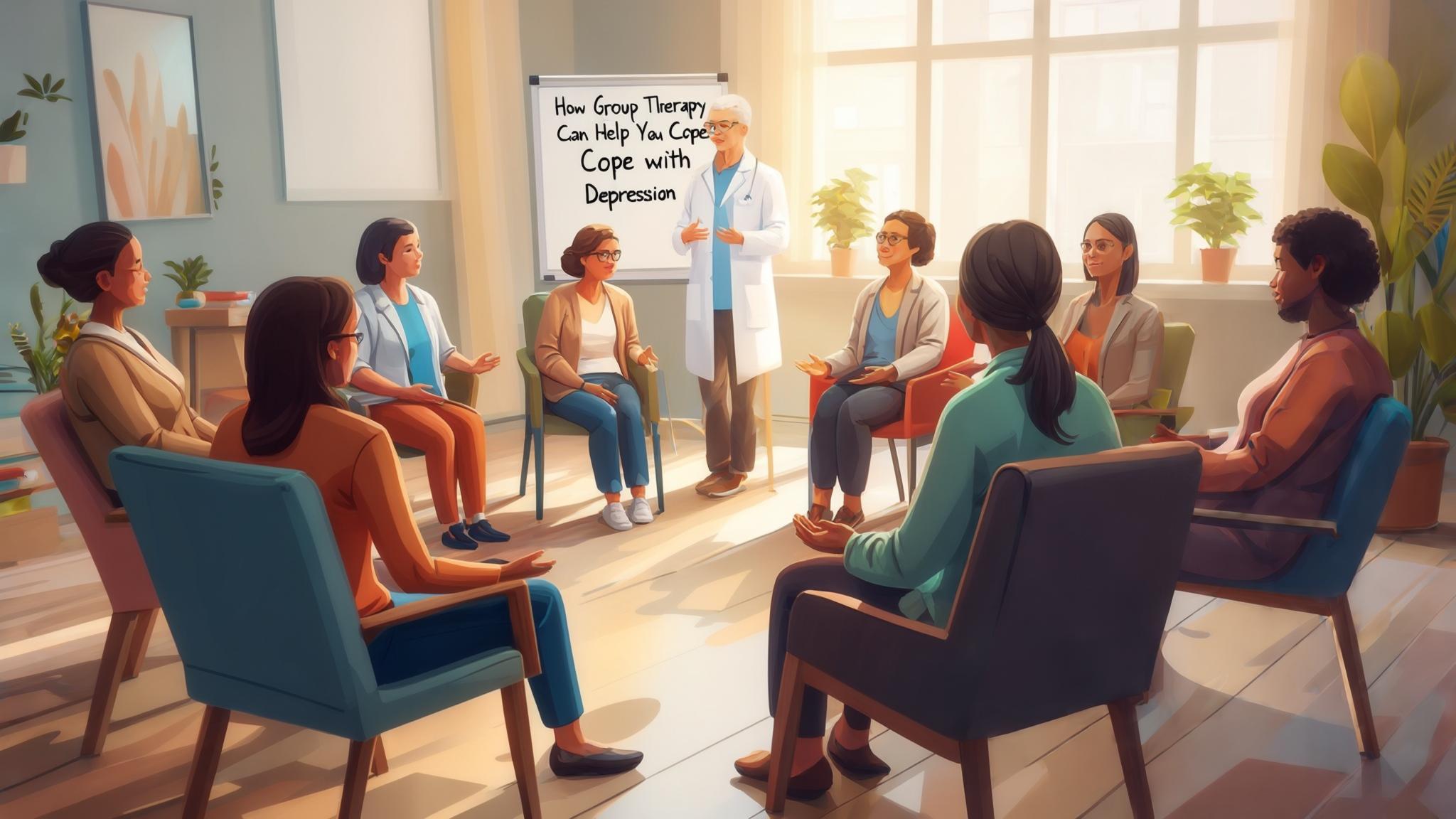I. Introduction
A. Definition of Group Therapy
Group therapy is a form of psychotherapy in which a small group of individuals meets regularly to discuss their experiences and feelings, guided by a trained therapist. The primary types of group therapy include:
- Process-oriented groups: Focus on interpersonal relationships and group dynamics.
- Support groups: Provide a safe space for participants to share experiences and offer mutual support.
- Psychoeducational groups: Aim to educate members about mental health conditions and coping strategies.
B. Importance of Addressing Depression
Depression is a common mental health disorder affecting millions worldwide. According to the World Health Organization, over 264 million people suffer from depression, which can severely impact daily functioning, relationships, and overall quality of life.
C. Purpose of the Article
This article explores how group therapy serves as an effective tool for coping with depression, highlighting its benefits, structure, and real-life success stories.
II. Understanding Depression
A. Symptoms of Depression
Depression manifests in various ways, including:
- Emotional symptoms: Persistent sadness, hopelessness, irritability.
- Physical symptoms: Fatigue, changes in appetite, sleep disturbances.
B. Causes of Depression
Numerous factors contribute to depression, categorized into three main areas:
- Biological factors: Genetic predisposition, brain chemistry.
- Psychological factors: Low self-esteem, negative thought patterns.
- Environmental factors: Trauma, stressful life events, social isolation.
C. Traditional Treatment Options
Depression is typically treated through:
- Individual therapy: One-on-one sessions with a therapist.
- Medication: Antidepressants to balance brain chemicals.
- Lifestyle changes: Regular exercise, healthy diet, and social engagement.
III. What is Group Therapy?
A. Structure of Group Therapy
Group therapy sessions usually consist of 6-12 participants and last 1-2 hours, meeting weekly or bi-weekly. The therapist facilitates discussions, ensuring a safe and supportive atmosphere.
B. Types of Group Therapy for Depression
- Support groups: Focus on shared experiences and emotional support.
- Therapeutic groups: Address specific issues like trauma or grief.
- Specialized groups: Tailored for specific demographics, such as the elderly or adolescents.
C. Theoretical Foundations
Various theories underpin group therapy, including:
- Cognitive-behavioral therapy: Addresses negative thought patterns.
- Humanistic therapy: Focuses on personal growth and self-acceptance.
IV. Benefits of Group Therapy for Depression
A. Sense of Community and Belonging
Sharing experiences with others battling similar issues fosters a sense of community, reducing isolation.
B. Diverse Perspectives and Shared Experiences
Members learn from the coping strategies and insights of others, enriching their own understanding of recovery.
C. Emotional Support and Validation
The therapeutic environment fosters empathy, where participants feel understanding and validation of their feelings.
D. Skill Development
Group therapy often includes teaching coping mechanisms, such as mindfulness techniques and problem-solving skills.
E. Accountability and Motivation
Encouragement from group members promotes accountability, motivating individuals to stay committed to their recovery journeys.
V. How Group Therapy Works
A. Initial Assessment and Group Formation
Participants undergo an assessment process for appropriate group placement based on needs and compatibility.
B. Dynamics of Group Sessions
Group sessions often feature discussions, role-playing, and mindfulness exercises tailored to the members' needs.
C. The Role of the Facilitator
A skilled therapist ensures a safe space, guiding discussions and addressing conflicts or discomfort.
D. Progress Tracking and Feedback
Therapists track participants’ progress through periodic check-ins and adjust strategies as necessary.
VI. Overcoming Challenges in Group Therapy
A. Initial Hesitations and Stigma
Balancing fear around sharing personal stories can be challenging, but it is a common initial barrier.
B. Group Dynamics and Conflicts
Differing personalities may lead to conflicts; understanding and communication can help navigate these.
C. Commitment and Consistency
Regular attendance and active participation are key to maximizing the benefits of group therapy.
VII. Real-Life Success Stories
A. Testimonials from Participants
Many individuals report transformation due to group therapy, citing improved coping strategies and resilience against depression.
B. Case Studies
Illustrative examples demonstrate the effectiveness of group therapy interventions, including notable improvements in mental health and wellbeing.
VIII. How to Find Group Therapy
A. Resources for Finding Groups
- Local mental health clinics and hospitals often offer group therapy options.
- Community centers may have support groups available.
- Online platforms provide access to virtual groups, allowing broader participation regardless of location.
B. Questions to Ask Before Joining a Group
- Consider the facilitator's qualifications and experience.
- Ask about the group's focus and whether it aligns with personal needs.
IX. Conclusion
A. Recap of Key Points
Group therapy is a powerful resource in managing depression, facilitating emotional support, skill development, and shared healing.
B. Encouragement to Seek Help
Recognizing the need for help and pursuing therapy are signs of strength.
C. Call to Action
Explore group therapy as a viable option for coping with depression and consider taking the first step towards healing.
X. References
A. Academic Studies and Articles
- Smith, J. (2020). Effectiveness of Group Therapy in Treating Depression. Journal of Mental Health.
- Doe, A. & Lee, R. (2021). Community Support in Mental Health Recovery. Psychological Reports.
B. Books and Resources
- "The Depression Workbook" by Mary Ellen Copeland.
- "Group Therapy for Depression: A Practitioner’s Guide" by Jean D. Glick.
C. Professional Organizations
- National Alliance on Mental Illness (NAMI)
- American Psychological Association (APA)
By understanding the dynamics and benefits of group therapy, individuals struggling with depression can find hope, support, and pathways to recovery.

